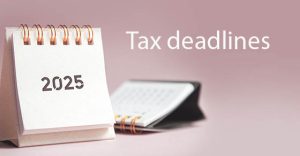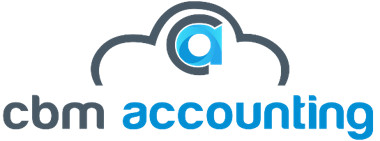[lwptoc min=”2″]
Tax season can be a daunting time for business owners, but with proper preparation, you can navigate it smoothly and efficiently. Whether you’re a sole trader, a limited company, or a partnership, being organized and proactive can save you time, reduce stress, and help you avoid costly mistakes. Here’s a step-by-step guide to preparing your business for tax season.
Understand Your Tax Obligations
Know Your Tax Type
- Corporation Tax: If you run a limited company, you’ll need to pay Corporation Tax on your profits.
- Income Tax: Sole traders and partners pay Income Tax on their profits.
- VAT: If your business is VAT registered, you’ll need to submit VAT returns.
- PAYE: If you have employees, you must manage Pay As You Earn (PAYE) for income tax and National Insurance contributions.
Organize Your Financial Records (Throughout the Year!)
- Implement a System: Don’t wait until tax season to organize your finances. Establish a consistent system for tracking income, expenses, and receipts throughout the year. Cloud-based accounting software, spreadsheets, or even physical filing systems can work, as long as they’re consistent.
- Categorize Expenses: Properly categorize your expenses for accurate reporting. Common categories include office supplies, travel, marketing, and professional fees.
- Maintain Digital and Physical Records: Keep both digital and physical copies of important documents, such as invoices, receipts, bank statements, and contracts.
- Reconcile Bank Statements: Regularly reconcile your bank statements with your accounting records to identify and correct any discrepancies.

Review Tax Deadlines
Know your tax deadlines to avoid penalties. Key UK business tax deadlines include:
- Self-Assessment Tax Return – 31 January
- Corporation Tax Return – 12 months after the end of your accounting period
- VAT Returns – Usually every quarter
- PAYE & National Insurance Contributions – Monthly or quarterly
Identify Potential Deductions and Credits
- Business Expenses: Review your expenses to identify all eligible deductions, such as office supplies, travel, and marketing.
- Home Office Deduction (If Applicable): If you work from home, determine if you qualify for the home office deduction.
- Vehicle Expenses: If you use a vehicle for business purposes, keep accurate records of mileage and expenses.
- Research Tax Credits: Explore available tax credits for small businesses, such as research and development credits or energy-saving credits.
- Consult with a Tax Professional: A tax professional can help you identify all eligible deductions and credits.
Review and Update Your Accounting Software (If Applicable)
- Software Updates: Ensure your accounting software is up-to-date with the latest tax regulations and features.
- Data Integrity: Verify the accuracy of your data. Run reports to identify any errors or inconsistencies.
- Backups: Create backups of your financial data to prevent data loss.
Gather Necessary Documents
- Income Statements: Prepare income statements for the tax year.
- Balance Sheets: Compile your balance sheets.
- Bank Statements: Gather all bank statements for your business accounts.
- Payroll Records: Collect payroll records, including W-2s and 1099s (or their UK equivalents).
- Expense Reports: Organize all your expense reports and receipts.
- Loan Documents: Gather any loan documents or statements.
- Asset Purchase/Sale Records: Prepare records of any asset purchases or sales.
- Previous Tax Returns: Keep your previous tax returns handy for reference.

Review Your Financial Statements
Profit and Loss Statement
- Analyze your profit and loss statement to understand your business’s financial performance over the past year. This will help you identify areas for improvement and inform your tax calculations.
Balance Sheet
- Review your balance sheet to assess your business’s assets, liabilities, and equity. This will provide a comprehensive view of your financial health.
Check for Tax Reliefs & Credits
Explore government schemes such as:
- R&D Tax Relief for innovation-focused businesses
- Annual Investment Allowance (AIA) for capital expenditures
- Small Business Rate Relief (SBRR) for eligible businesses
Prepare for Inventory Valuation (If Applicable)
- Accurate Inventory Counts: Conduct accurate inventory counts and valuations.
- Inventory Valuation Method: Ensure you are using a consistent inventory valuation method, such as FIFO or LIFO.
Review Payroll and Contractor Payments
- W-2s and 1099s: Ensure you have issued W-2s to your employees and 1099s to your independent contractors by the required deadlines.
- Payroll Tax Payments: Verify that all payroll tax payments have been made on time.
File Your Tax Return
Choose Your Filing Method
- Decide whether to file your tax return online or via paper form. Online filing is generally quicker and provides immediate confirmation of submission.
Double-Check Your Return
- Before submitting, review your tax return for accuracy. Ensure all figures are correct and that you’ve included all necessary documentation.
Make Your Tax Payment
Payment Methods
- Pay any tax owed by the deadline to avoid penalties. You can pay via:
- Online banking
- Debit or credit card
- Direct debit
- Cheque
File Your Tax Return on Time
- Deadlines: Be aware of the tax filing deadlines for your business type.
- E-Filing: Consider e-filing your tax return for faster processing and accuracy.
Plan for Next Year
- Review and Improve: After filing your tax return, review your financial processes and identify areas for improvement.
- Implement Best Practices: Implement best practices for record-keeping and tax planning throughout the year.
Consult a Tax Professional
If you’re unsure about your tax obligations or need assistance with complex tax matters, consider consulting a tax professional or accountant. They can provide valuable insights, help you maximize deductions, and ensure compliance with tax laws.
Key Tips for Success:
- Stay Organized: Maintain organized financial records throughout the year.
- Use Technology: Utilize accounting software and other tools to simplify the process.
- Seek Professional Help: Don’t hesitate to consult with a tax professional for guidance.
- Don’t Procrastinate: Start preparing for tax season early to avoid last-minute stress.
- Stay Informed: Keep up-to-date with changes in tax laws and regulations.
By following these steps, you can streamline your tax preparation process and ensure a smooth and successful tax season for your business. Remember, proactive planning is the key to minimizing stress and maximizing your tax savings.

